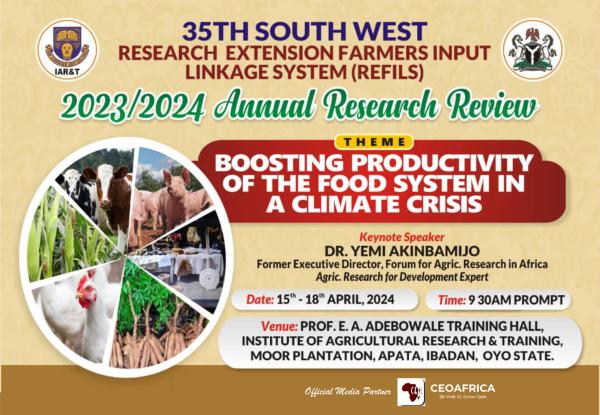
LAGOS—A United Nations, agency, Food and Agricultural Organisation, FAO, and private sector institutions in the country predicted, yesterday, that inflationary pressures may still be on the nation’s economy through to the end of the year, contrary to some indicators, which pointed to a waning cost-push consumer price increases. National Bureau of Statistics, NBS, is expected to release the inflation rate for the month of August 2016 on September 15 (tomorrow), based on the data calendar on its website. Details of the components of July 2016 inflation reported by NBS two weeks ago, had shown that the month-on-month (MoM) increase in consumer price index (CPI) fell for a second successive month, indicating that the sustained pressure on prices experienced so far in 2016 might be dissipating. But developments in global food baskets and economy analysts’ research point to a continued pressure on prices of goods and services. Index from the FAO showed that the Food Price Index, FPI, increased in August to a 15-month high, up by 1.95 per cent, compared with July, as most commodity prices rose in August, led by dairy, oils and sugar. The value of the Index in August is the highest since May 2015. The FAO Dairy Index rose by 8.63 per cent from July as prices of cheese, whole milk powder and butter were on the increase. Also, research reports by some financial institutions indicate that this development, coupled with Nigeria’s peculiar economic challenges, were still stoking up price movements. Consequently, analysts at FSDH Merchant Bank Limited foresee inflation rising further to 17.7 per cent in August, from 17.1 per cent recorded in July. They stated: “We expect the August 2016 inflation rate (year-on-year) to increase further to 17.71% from 17.13% recorded in the month of July 2016. “We expect the increase to come from increase in prices of food items and other non-food items as a result of continued pressure on the value of the Naira. “Our analysis indicates that the value of Naira appreciated at the inter-bank market by 1.56 per cent, while it depreciated at the parallel market by 10.24 per cent in August 2016. “The Naira gained N4.92 to close at USD/N316.24 at the inter-bank market, while it lost N43 to close at USD420 at the parallel market. “The depreciation recorded in the exchange rate, particularly in the parallel market between the two months, and higher prices in the international market, would put further pressure on domestic prices. “The prices of food items that FSDH Research monitored in August 2016 moved in varied directions. The prices of onions, palm oil, fish, rice and vegetable oil were up by 86.11%, 16.2%, 13.06%, 10.74% and 4.35%, while the price of tomatoes, yam, sweet potatoes, Irish potatoes and Garri fell by 57.11%, 13.33%, 8.33%, 5.56% and 2.38%. Prices of some items remain unchanged “Meanwhile, the price of beans and meat remained unchanged. The movement in the prices of food items during the month resulted in a 1.10% increase in our Food and Non-Alcoholic Index to 209.33 points. “We also noticed increases in clothing and footwear; housing, water, electricity, gas & other fuels divisions between July and August 2016. “Our model indicates that the price movements in consumer goods and services in August 2016 would increase the composite consumer price index (CCPI) to 206.46 points, representing a month-on-month increase of 1.09 per cent. We estimate that the increase in the CCPI in August will produce an inflation rate of 17.71%”. After its extensive market research, analysts at ARM Investments Limited concluded that inflation, which had risen to 16-year high in July, would continue to rise throughout the year, with their own estimate for August slightly higher at 17.8 per cent. They further stated: “Over the rest of the year, heavy rainfall as seen in August, which resulted in flooding across 14 states, poses risk to main season harvest in September and October. “We buttress our view with a recent report, wherein Nigeria Hydrological Service Agency, NHSA, reported that increased flooding along Niger-Benue is allowing water levels reach benchmark heights which could lead to major flooding in 16 states, mostly in the food producing Middle belt region. “The foregoing, alongside continued Naira weakness at the parallel segment, points to sustained food pressure. “Elsewhere, while we expect PMS (petrol) prices to continue to moderate over the rest of the year, pressures from higher energy costs should continue to drive core basket higher, albeit, at a slower pace. “Incorporating developments across food and core baskets, we estimate a 70 bases points month-on-month (MoM) rise in August headline inflation to 17.8% year-on-year.”
By Emeka Anaeto, Economy Editor






















